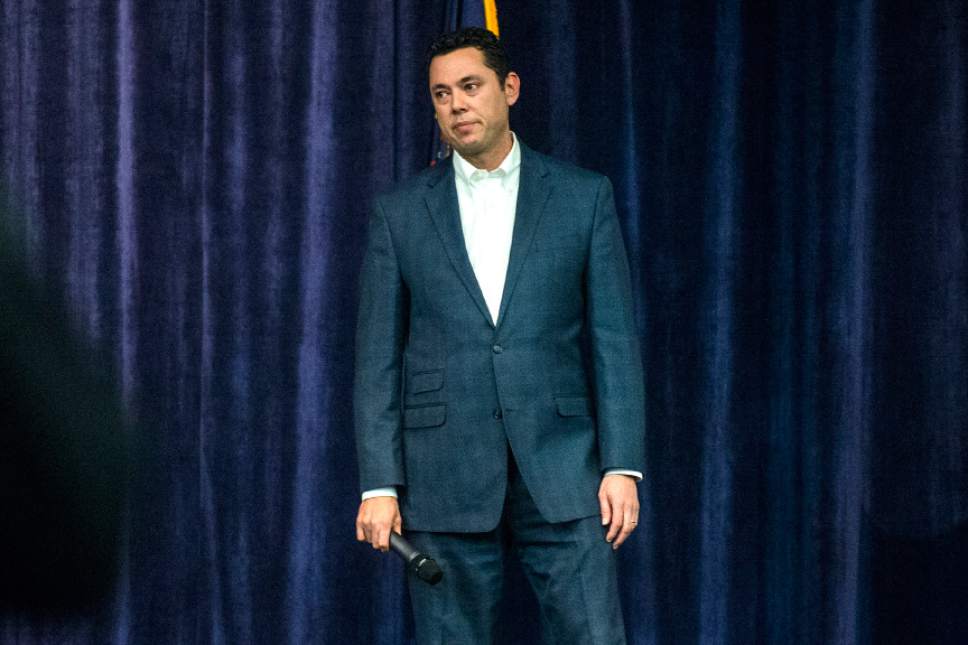This is an archived article that was published on sltrib.com in 2017, and information in the article may be outdated. It is provided only for personal research purposes and may not be reprinted.
No sooner had Rep. Jason Chaffetz, R-Utah, announced that he wouldn't seek reelection in 2018 than he also allowed he likely wouldn't serve out his current term. Chances are, no one is more anxious for him to leave Washington than residents of the capital, whose interests he has persistently tried to undermine. During his time in Congress, no member of either chamber has fought harder against home rule. We can only hope that whoever succeeds him as chairman of the committee with oversight over the District has more respect than he for the city's democratic rights.
Chaffetz's sudden decision, disclosed Wednesday on his Facebook page, shocked the political world. He had, after all, just won re-election and was seen as a likely candidate for the Senate. The always-suspect explanation of wanting to spend more time with family seemed especially curious, given that he and his wife were about to become empty nesters. That he is choosing to walk away makes perfect sense, though, when viewed through the crass political considerations that have marked his career.
Chaffetz rose to national prominence via his high-profile investigations as chairman of the House Oversight and Government Reform Committee. But the zeal for ferreting out supposed wrongdoing, which was on full display during the Obama administration and when Hillary Clinton was running for office, was nowhere to be seen when Donald Trump took office and questions immediately arose about conflicts of interest, violations of the emoluments clause or Russian connections. Now in the crosshairs of rising public discontent — becoming what the Deseret News called "the face of Republican fecklessness" — Chaffetz apparently saw retreat to Utah, and possible preparation for a run for governor, as the best way out.
Such expediency doesn't come as a big surprise to D.C. officials and residents, since Chaffetz routinely tried to advance his political interests at their expense. How else to describe the hypocrisy of him holding himself out as an advocate for local control and less government while at the same trying to prevent the city from spending its local dollars and deciding local laws? In his first month in Congress in 2009, he testified against voting rights for the District, and in the following years he opposed budget autonomy, sought to overturn laws passed by the D.C. Council and once even threatened Mayor Muriel Bowser, D, with jail because of the city's legalization of marijuana.
The District is right to celebrate Chaffetz's departure, but it should be wary. Those likely in line to take over as head of the oversight committee seem similarly antagonistic to the District. There is hope, though, in the fact that there have been Republicans in charge of the committee — Rep. Darrell Issa, Calif., and former Rep. Tom Davis, Va. — who turned out to be advocates for equal and fair treatment of the District and its residents.



